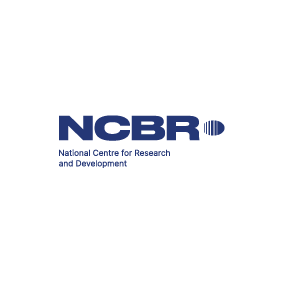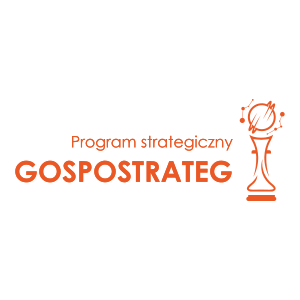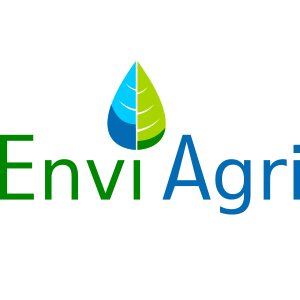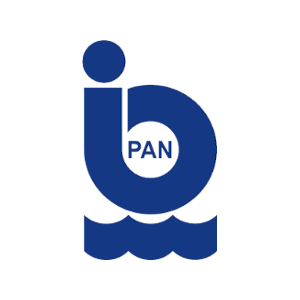Institute of Oceanology Polish Academy of Sciences (IO PAN) was founded in 1983 in place of the Marine Station in Sopot which had existed since 1953.
The mission of the Institute of Oceanology is to conduct marine environmental research in order to expand knowledge of the processes and phenomena taking place there. Studies, which are carried out on the Baltic Sea and European Arcitc Seas, focus these days on the following four strategic fields:
The Institute has the rights to confer scientific doctoral degree (since 1993) and associate professor degree (since 2000) in the field of natural sciences, in the discipline of Earth and related environmental sciences. Currently, the Institute uses a complex of buildings featuring modern architecture, with a total usable area of 5,300 square meters, well-developed technical infrastructure, including a conference room able to seat about 150, equipped with state-of-the-art audio and video appliances. Research laboratories are provided with modern scientific equipment.
An important task of the Institute is to disseminate knowledge about the sea and beyond to society. The Institute carries out scientific, research, and expert activities. The experienced scientific staff at IO PAN consists of specialists in various fields of science, including oceanographers, chemists, geo- and biochemists, biologists, opticians, physicists, ecologists, geneticists, programmers, IT specialists, GIS system experts, and electronics specialists. The innovative research, based on the latest technologies, enables the development of institutional cooperation and the execution of the most demanding and complex research and development tasks at the highest global level.
Within its operations, the Institute of Oceanology, Polish Academy of Sciences, has six main departments and one independent laboratory:
In its activities, the Institute of Oceanology, Polish Academy of Sciences, implements projects funded by the Ministry of Science and Higher Education (MNiSzW), the Ministry of Education and Science (MEN), as well as projects selected in the competitions of the National Science Centre (NCN) and the National Centre for Research and Development (NCBR). Additionally, IO PAN actively participates in international projects funded by the European Union under programs such as Horizon 2020, Horizon Europe, the Baltic Sea Region (BSR) Programme, South Baltic Programme, the Innovative Economy Operational Programme, the Infrastructure and Environment Operational Programme, the Digital Poland Operational Programme, the Regional Operational Programme of the Pomeranian Voivodeship, and other programs outside the European Union, such as the Norwegian Research Cooperation and the Norwegian Financial Mechanism, as well as American and Canadian projects. Currently, the Institute is involved in around 140 projects.
The Institute of Oceanology, Polish Academy of Sciences, actively engages in preparing expertise, mainly related to the assessment of the marine environment's condition, environmental impact assessments of investments, and the biological valuation of the Polish sea and coastal zone. The applicant has broad experience in the local, national, and international markets. In June 2016, the Institute of Oceanology PAN received the prestigious "HR Excellence in Research" award from the European Commission. According to the decision of the Ministry of Science and Higher Education, the Institute held the status of a National Leading Scientific Centre within the Centre for Polar Studies in Earth Sciences for the years 2014-2018. Since 2003, the Institute has been involved in building the European Research Area (ERA NET - European Research Area), initially acting on behalf of the Ministry of Science and Higher Education (BONUS ERA NET MarinERA – 6th EU Framework Programme), and later as a participant in competitive projects in the BONUS ERA NET PLUS - 7th EU Framework Programme and the BONUS 185 program. IO PAN participated in three European networks of excellence affiliated with EU FP6 and FP7: EurOceans, MARBEF, and Marine Genomics Europe. Since 2012, these networks have been integrated into the EuroMarine network.
IO PAN has valuable experience in coordinating national projects funded by European funds within Operational Programs as well as international projects under the Norwegian Financial Mechanism and the Polish-Norwegian Research Fund, along with conducting research and development work.
The project manager is Prof. dr hab. Lidia Dzierzbicka-Głowacka (ORCID: https://orcid.org/0000-0001-6151-2390), a 39-year employee of IO PAN, the head of the Ecohydrodynamics Modeling Laboratory (since 2003) (https://www.iopan.pl/ehd2/index_en.html), mathematician, programmer, and expert in numerical modeling of processes occurring in marine and environmental systems. She is a pioneer in research on modeling biological and chemical processes in natural environments using numerical methods. In 2020, she was awarded the President of the Polish Academy of Sciences Award for applying mathematical models and computer simulations as new methods for recognizing processes in natural environments.
Institute website link: www.iopan.pl
The Institute of Soil Science and Plant Nutrition – State Research Institute (IUNG-PIB) employs 297 people. The scientific staff of IUNG-PIB includes 95 researchers and research-technicians, including: 16 professors, 11 institute professors, 30 associate professors, 14 assistants, and 24 research-technicians. The Institute's research programs are carried out in 10 scientific departments, supported by a well-organized auxiliary infrastructure (Research Support Department, Science Communication Department, Main Chemical Analysis Laboratory, and 9 Agricultural Experimental Stations). IUNG-PIB continues the legacy of 160 years of agricultural research institutions in Puławy. As a distinguished center of agricultural sciences in Poland and abroad, it was twice awarded the status of a European Union Centre of Excellence (PROLAND from 2002-2006 and PROFICIENCY from 2009-2014), recognizing it as a full partner in the European Research Area. From 2015 to 2020, the Institute carried out the BioEcon project "New Strategies on Bio-Economy in Poland" (Horizon 2020). Between 2019 and 2023, the Institute coordinated the BIOEASTsUP project (Horizon 2020) "Support for the development of a sustainable circular bioeconomy in Central and Eastern European countries." The project supported the BIOEAST initiative in implementing its mission through 2030 and in creating the Action Plan for transforming Central and Eastern Europe (CEE) in terms of bioeconomy (21 partners). Since 2005, IUNG has held the status of a State Research Institute.
Between 2005 and 2020, the Institute implemented three consecutive multi-annual programs:
Since 2021, the Institute has been implementing annual targeted grants from the Ministry of Agriculture and Rural Development (MRiRW). The main goal of these grants is to support activities related to the rational use of resources, environmental protection, biodiversity protection, combating climate change, and the rational development of the production potential of Polish agriculture. All work is aligned with the current Common Agricultural Policy (CAP) and the development of strategic guidelines for CAP for 2023–2027. Following the 2017-2021 scientific unit evaluation, IUNG-PIB received an "A" category, placing it among the best institutions in the country. The research carried out at the Institute covers a broad range of topics related to plant production and the impact of agriculture on the environment. In terms of environmental research, the Institute has the largest agrometeorological, soil science, and environmental databases in Poland, covering agricultural land in Poland.
In addition to statutory funding from the Ministry of Education and Science (MEiN) and targeted grants from the Ministry of Agriculture and Rural Development (MRiRW), the Institute’s activities are funded by national and international projects, MRiRW programs, central programs, research commissioned by local authorities, industry, and other economic entities. As of 2024 (as of 31.10.2024), the Institute is involved in a total of 42 projects.
IUNG-PIB is a partner in the Doctoral School of Exact and Natural Sciences. Maria Curie-Skłodowska University in Lublin is the leader, while the Institute of Agrophysics of the Polish Academy of Sciences in Lublin, the Institute of Catalysis and Surface Chemistry of the Polish Academy of Sciences in Kraków, and the Institute of Soil Science and Plant Nutrition – PIB in Puławy are the participating partners. IUNG-PIB has the authority to confer academic degrees in agricultural sciences, specializing in agriculture and horticulture. In addition to an extensive publication output, IUNG-PIB supports decision-making at various levels of state and local government administration. The Institute’s applied research results, concerning plant production technologies, environmental protection, and rural land management, are directly transferred to agricultural practice: advisory services, farmers, and agricultural schools.
In 2015, the construction of the modern laboratory, the Innovative Agricultural Research Center in Puławy, was completed. The center is equipped with innovative scientific research apparatus, enabling the expansion of research conducted at the Institute, which increases the attractiveness of
IUNG’s offerings to entrepreneurs. The acquisition of specialized equipment has positively impacted the capacity to carry out complex research and analyses, significantly reducing waiting times for results. This also created increased opportunities for collaboration with other scientific institutions and businesses, opening doors to more active participation in project competitions funded by the National Science Centre (NCN), the National Centre for Research and Development (NCBR), and the European Commission.
Institute website link: www.iung.pl
The Institute was established on January 1, 2010, by the regulation of the Minister of Agriculture and Rural Development through the merger of the Institute of Building, Mechanization, and Electrification of Agriculture (IBMER - founded in 1948) and the Institute of Melioration and Grassland Management (IMUZ - founded in 1953). The Institute employs a total of 208 people (as of 20.07.2022), including 123 research staff members.
ITP-PIB’s organizational structure consists of units grouped by territorial location, scientific aspects, supporting scientific activity, and administrative-technical departments. The Institute has 8 branches: Falenty Branch, Bydgoszcz Branch, Kłudzienko Branch, Kraków Branch, Poznań Branch, Szczecin Branch, Warsaw Branch, Wrocław Branch, and the Experimental Station in Biebrza. Scientific research and development work is carried out in two scientific departments: the Natural Sciences Department and the Technological Department, as well as in specialized research laboratories. The departments supporting scientific activities are the Science Service Department and the Publishing Department.
The Institute's activities include conducting scientific research and development work, as well as implementation, dissemination, advisory, educational, promotional, inventive, and monitoring activities, focusing on:
Institute website link: https://www.itp.edu.pl/
The Association does not conduct business activities. It was established on March 14, 2002. Each member of the ATNZP operates a business and acquires funds for running and developing their activities. One of the members of ATNZP, Mr. Marcin Selonke, the President of the foundation “Sławny Gród Nie Zapomnieć o Praojcach-Osada średniowieczna Sławutowo” (www.slawutowo.pl), has extensive experience in managing projects funded by European agricultural funds.
As part of Task 8, implemented by ATNZP, "Pilot of the proposed results of the project solutions," a significant portion of the work will be carried out by the subcontractor, the Pomorski Ośrodek Doradztwa Rolniczego w Lubaniu (Pomorskie Agricultural Advisory Center in Lubań), which submitted an offer (attached to the application), as well as by environmental and agricultural advisors employed on civil law contracts within the project, with whom discussions have taken place.
Pomorski Ośrodek Doradztwa Rolniczego w Lubaniu provides advisory, informational, and training services to residents of rural areas. The center operates in accordance with an implemented Quality Management System, which focuses on meeting client requirements, complying with applicable laws, and pursuing the following objectives:
The main task of the Pomorski Ośrodek Doradztwa Rolniczego w Lubaniu is to provide comprehensive support to farmers, rural residents, and businesses related to agricultural food processing to increase farm income and improve rural living conditions.
This is achieved through:
Advisory activities focus on:
The center offers services in the following areas:
The center also organizes fairs, exhibitions, demonstrations, conferences, and other events promoting agricultural knowledge and new production technologies.
Submitting applications and other necessary documents for financial aid from EU funds or other national and international institutions is another area of service provided.

Partners of the EnviAgri Project




The project is funded by the National Centre for Research and Development under the GOSPOSTRATEG IX strategic program